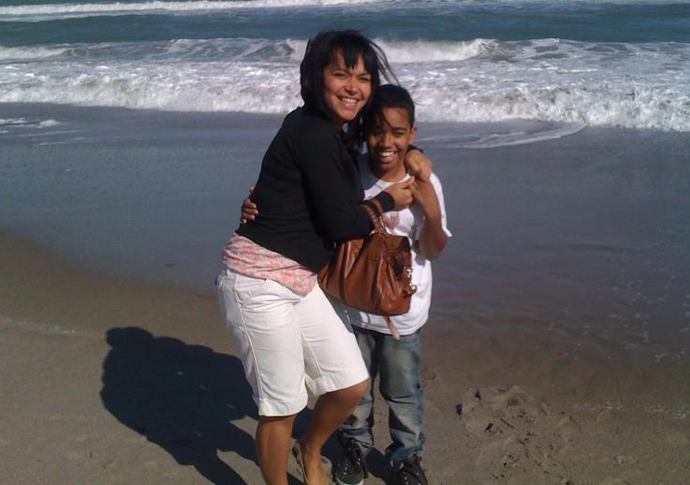Mother: Fabian’s death was very much linked to austerity
24-year-old was told he did not qualify for an NHS mental health team referral
Friday, 1st November 2024 — By Isabel Loubser

Fabian Buxton
A MOTHER whose 24-year-old son passed away after he was declined mental health support multiple times has warned of the danger of under-funding local mental health services.
Assistant Coroner Jonathan Stevens concluded on Friday that although Fabian Buxton’s death was drug-related, his family had been “let down by some of the care providers”.
“My view is that these stories are very much linked to austerity and the hollowing out of public services,” said Amy Buxton-Jennings, Fabian’s mother.
St Pancras Coroner’s Court heard last week that Mr Buxton was told in 2019 that he did not qualify for a referral to a NHS mental health team and was later deemed to have a cocaine addiction rather than any underlying mental illness by a private psychiatrist, despite suffering from symptoms of psychosis.
Ms Buxton-Jennings said: “I’m well aware public services are operating in a very difficult context and there is a tendency for people to identify reasons why they can’t help, rather than looking at the ways they could help.”
She added: “It was pretty clear… through this inquest what had gone wrong. And I’m aware that Fabian is not the only one, that there are many stories like this of how difficult it is to get mental health support for people.”
During his summing up, Mr Stevens added that a private rehab clinic had “misled and mis-sold” Fabian’s mother on what type of help they could provide, and that Whipps Cross hospital had made “significant failings” in his care, including failing to contact any of the previous services Fabian had used.

Fabian with his mother, Amy Buxton-Jennings
Ms Buxton-Jennings told the Tribune: “The theme running through our experience of trying to get Fabian help… was that public services seemed much more comfortable as viewing Fabian as having a drug problem rather than a mental health problem.”
She added: “I do feel that race played a factor there. Maybe it’s easier, or neater, or people aren’t challenging themselves around the stereotypes that exist, and the stereotype about black boys and drugs is quite a pervasive one.”
Ms Buxton-Jennings said that the “best chance” of stopping so many people falling through the cracks “is to argue for a much more significant investment in public services, and communities, and community organisations who are right at the front line in terms of trying to engage people”.
This is why Fabian’s colleagues from the Manor Welfare Trust, a health and wellbeing charity geared towards helping those from minority communities, alongside his friends and family are now raising money for a new centre in his memory that will focus on providing culturally-sensitive mental health support to young black men.
Ms Buxton-Jennings said: “There are lots of people who will say that Fabian touched their lives in a remarkable way. He really did believe in social justice … and the importance of community and people coming together. His vision for community care, that absolutely sums up to me what Fabian was about… and how I focus our efforts on his legacy and what he put out in the world.

Lanterns are lit in Fabian’s memory
“There’s something really beautiful about the idea of Fabian still being able to help people in the way that he was obviously so good at during his life”.
Mr Buxton is remembered as a “brilliant” young man, who colleagues say went “above and beyond” whilst working at Manor Gardens.
“At his funeral, at the end this guy came up and touched Fabian’s coffin,” Ms Buxton-Jennings said, “and I asked someone who he was and, apparently, he was one of Fabian’s clients, and he had come to see Fabian that day and they [staff at Manor Gardens] had said it was his funeral. And this guy had come all the way down from Finsbury Park to Greenwich to be there.”
She added: “All mothers say it, but I felt that Fabian had the potential to have an amazing career that would have enabled him to touch and improve the lives of so many people.”
A statement from the North East NHS London Foundation Trust said: “We would like to offer our heartfelt condolences to Mr Buxton’s family and friends at this time.
“We continue to work to improve services, focusing on identified areas including communicating better with external agencies and patients’ families, moving away from risk assessment to a patient-centred risk formulation model and ensuring that safeguarding considerations are well incorporated in discharge plans.”
Martin Preston, founder and CEO of the private rehab centre Delamere, expressed condolences and added: “Since this shocking incident, Delamere has worked with all of the authorities involved to build the fullest picture of the chain of events that took place.
“Now we will study the coroner’s conclusions accordingly.”
• Friends and family have already raised £25,000 for the project, and hope to begin building soon. To donate, visit https://www.justgiving.com/crowdfunding/Fabiansplace
‘Who is this serving?’ Family say inquest process is ‘dehumanising’
MR Buxton’s family expressed concern about the “dehumanising” and “alienating” process families are subjected to during inquests into their loved ones’ deaths.
They are not the first to tell the Tribune that the coroner’s court process is often traumatic for relatives and friends who must wait months or even years in the search for clarity.
Indeed, in April, another family told St Pancras Coroner’s Court that they felt they had not been “treated with compassion, care, dignity, or respect” throughout the inquest process.
Ms Buxton-Jennings said: “When we were initially told about Fabian’s death, I did ask whether we had any say over that [whether there was an inquest] and I was told that we didn’t. We didn’t have a choice, it had to happen. Same for the post-mortem, which I would probably have said not to do.”
She added: “I was certainly sitting in the courtroom thinking, ‘Who is this serving?’ From my point of view, it felt like lots of people were getting paid quite a lot. There were lots of lawyers there and it’s public money that is funding that, and I felt that money could have been better spent supporting Fabian when he was alive. It felt like a very dehumanising process”.
Ms Buxton-Jennings and her husband Jason Jennings did not stay in the courtroom to hear the coroner’s conclusion. “It was the only way I could express how I felt,” Ms Buxton-Jenning said of her decision to leave.
She added: “The family voice and the story of the person, who they were and what they were about – it felt like there wasn’t sufficient emphasis on that through the inquest. I think this very highly legal dimension to it, I found quite alienating. Who is it for and who does it serve? That for me seems to need some rethinking.”